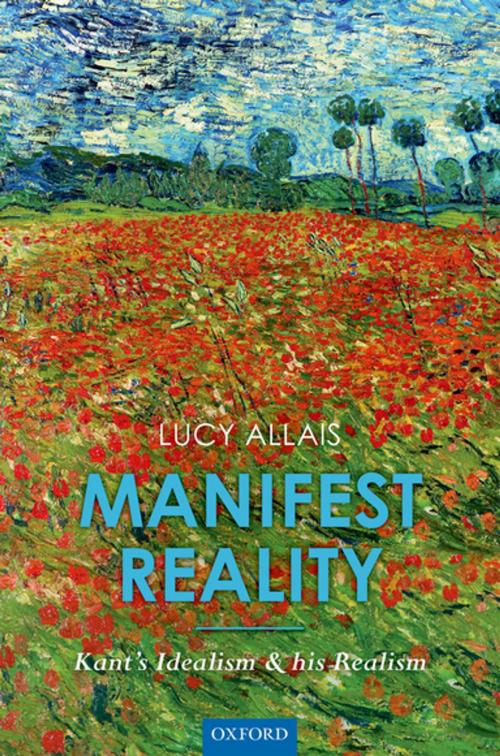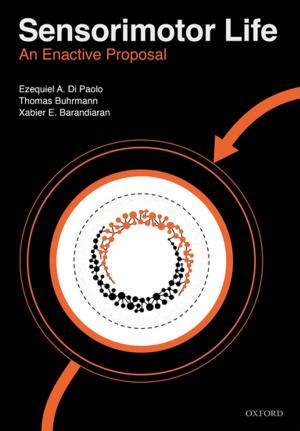Manifest Reality
Kant's Idealism and his Realism
Nonfiction, Religion & Spirituality, Philosophy, Epistemology, Metaphysics| Author: | Lucy Allais | ISBN: | 9780191064241 |
| Publisher: | OUP Oxford | Publication: | September 3, 2015 |
| Imprint: | OUP Oxford | Language: | English |
| Author: | Lucy Allais |
| ISBN: | 9780191064241 |
| Publisher: | OUP Oxford |
| Publication: | September 3, 2015 |
| Imprint: | OUP Oxford |
| Language: | English |
At the heart of Immanuel Kant's critical philosophy is an epistemological and metaphysical position he calls transcendental idealism; the aim of this book is to understand this position. Despite the centrality of transcendental idealism in Kant's thinking, in over two hundred years since the publication of the first Critique there is still no agreement on how to interpret the position, or even on whether, and in what sense, it is a metaphysical position. Lucy Allais argue that Kant's distinction between things in themselves and things as they appear to us has both epistemological and metaphysical components. He is committed to a genuine idealism about things as they appear to us, but this is not a phenomenalist idealism. He is committed to the claim that there is an aspect of reality that grounds mind-dependent spatio-temporal objects, and which we cannot cognize, but he does not assert the existence of distinct non-spatio-temporal objects. A central part of Allais's reading involves paying detailed attention to Kant's notion of intuition, and its role in cognition. She understands Kantian intuitions as representations that give us acquaintance with the objects of thought. Kant's idealism can be understood as limiting empirical reality to that with which we can have acquaintance. He thinks that this empirical reality is mind-dependent in the sense that it is not experience-transcendent, rather than holding that it exists literally in our minds. Reading intuition in this way enables us to make sense of Kant's central argument for his idealism in the Transcendental Aesthetic, and to see why he takes the complete idealist position to be established there. This shows that reading a central part of his argument in the Transcendental Deduction as epistemological is compatible with a metaphysical, idealist reading of transcendental idealism.
At the heart of Immanuel Kant's critical philosophy is an epistemological and metaphysical position he calls transcendental idealism; the aim of this book is to understand this position. Despite the centrality of transcendental idealism in Kant's thinking, in over two hundred years since the publication of the first Critique there is still no agreement on how to interpret the position, or even on whether, and in what sense, it is a metaphysical position. Lucy Allais argue that Kant's distinction between things in themselves and things as they appear to us has both epistemological and metaphysical components. He is committed to a genuine idealism about things as they appear to us, but this is not a phenomenalist idealism. He is committed to the claim that there is an aspect of reality that grounds mind-dependent spatio-temporal objects, and which we cannot cognize, but he does not assert the existence of distinct non-spatio-temporal objects. A central part of Allais's reading involves paying detailed attention to Kant's notion of intuition, and its role in cognition. She understands Kantian intuitions as representations that give us acquaintance with the objects of thought. Kant's idealism can be understood as limiting empirical reality to that with which we can have acquaintance. He thinks that this empirical reality is mind-dependent in the sense that it is not experience-transcendent, rather than holding that it exists literally in our minds. Reading intuition in this way enables us to make sense of Kant's central argument for his idealism in the Transcendental Aesthetic, and to see why he takes the complete idealist position to be established there. This shows that reading a central part of his argument in the Transcendental Deduction as epistemological is compatible with a metaphysical, idealist reading of transcendental idealism.















